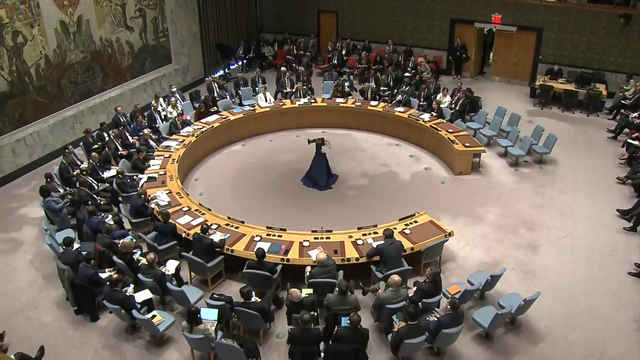
All United Nations sanctions against Mali will end on August 31, after Russia vetoed the proposal by France and the United Arab Emirates (UAE) to have them extended.
Russia’s ambassador to the UN, Vassily Nebenzia, said the draft completely disregarded the concerns of both Bamako and Moscow, RT reports.
The Franco-Emirati draft would have extended both the sanctions and the mandate of the UN Expert Group charged with monitoring Mali, through August and September 2024 respectively. It received 13 votes in the UN Security Council but failed because Russia voted against it. China abstained.
The council rejected Moscow’s alternative draft, which would have ended the Expert Group mandate immediately and given the sanctions a “final” 12-month extension. Japan voted no, and 13 other members abstained.
According to AP, Moscow went after the Expert Group because its latest report criticised the Russian private military company Wagner, accusing it of “violence against women, and other forms of grave abuses of human rights and international humanitarian law” to “spread terror among populations.”
Bamako has justified its outreach to the Wagner Group by saying the Russian security advisers were far more effective against jihadist insurgents – unleashed across the Sahel in the wake of NATO’s 2011 regime-change intervention in Libya – than the French or the UN.
The Franco-Emirati draft “took absolutely no account of the concerns of the Malian side and the position of the Russian Federation,” Nebenzia said after the vote, explaining his veto.
Nebenzia reminded the Security Council that Mali itself requested the sanctions against eight individuals in 2017, as part of a peace process.
The Russian resolution, he said, “takes into account the position of the African members of the Council” that the sanctions should remain in effect for some time in order to promote the implementation of the peace agreement, but “not turn into an instrument of external influence on domestic political processes in Mali.”
France, the former colonial power in Mali, has already withdrawn all of its troops from the West African nation at the insistence of the military government in Bamako.
Mali has also given some 15,000 UN peacekeepers and civilian staff until December 31 to depart the country.
“We hope that in the future, sponsors of resolutions will prioritise a pragmatic approach and the interests of the host country in order to avoid unnecessary confrontation in the Security Council,” Nebenzia added.
“Especially in the circumstances where a compromise agreement could have been made if certain delegations had the political will to do so.”

